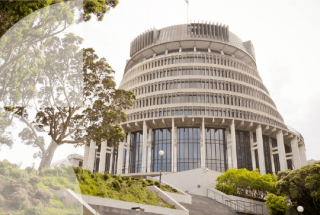Auckland Council's restrictions on stadium reports upheld

Auckland Council's restrictions on stadium reports upheld
Wednesday 28 November, 2018
Two Auckland councillors complained to the Ombudsman about lack of access to two “pre-feasibility” reports on the proposed national stadium in Auckland. Councillors were provided unredacted copies on the basis that the reports were not copied, that they were kept in a secure location, and that they were returned to the mayor’s office once the councillors had read them. The Ombudsman has upheld the Council’s decision to impose these conditions.
Councillor Watson told reporters that he was disappointed in the Ombudsman’s decision. He criticised the Ombudsman for not dealing with what he called a “culture of withholding information that exists with the Auckland Council”. Councillor Watson also complained that the reports, which cost nearly $1 million, have not been debated by any Council committee despite the high level of public interest in the stadium proposal.
At common law, councillors do not have an absolute right to access all Council information, but rather a right of access so far as it is reasonably necessary to enable the councillor to perform their duties, a principle established in an English case from the 1930s. It is because of the responsibilities of their role that councillors have a general (but not unrestricted) right of access to Council documents. But no councillor is, in the words of Justice Humphreys, “charged with the duty of making himself familiar with every document in the possession of [Council]”.
Turning to LGOIMA considerations, the Ombudsman noted that there is a strong public interest in councillors having access to the information that they require to perform their duty. In the case of the stadium reports there was a strong argument that councillors should be kept informed on the factors that might influence such an important proposal, even in its early stages. The public interest in councillors having access to the two reports was met by making the reports available subject to conditions. The Ombudsman was satisfied that the conditions were reasonable. He noted in particular that there was no time limit on access nor was there a limit on the number of times that the councillors could request the reports.
Meanwhile, a member’s bill proposing to amend LGOIMA to give councillors greater rights of access to Council information still awaits being drawn in the ballot. The bill, introduced by Opposition MP Denise Lee in February this year, would shorten the time for responding to requests from councillors under LGOIMA and would narrow the grounds for refusal of those requests. It has been criticised for focusing on LGOIMA when councillors’ core rights and duties arise under the LGA.
For assistance with questions relating the provision of sensitive information to councillors, including in response to LGOIMA requests, please contact Megan Crocket.





